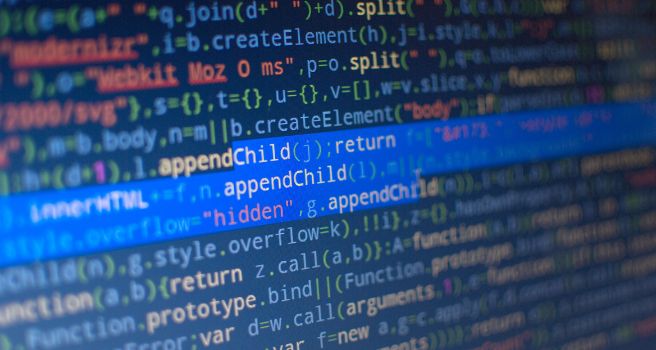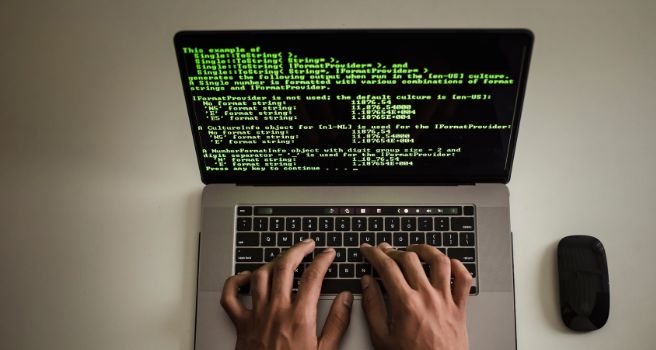The Importance of Coding Skills in B.Tech: How to Get Started
In the realm of higher education, particularly within Bachelor of Technology (B.Tech) programs, the significance of coding skills cannot be overstated. In an increasingly digital world where technology permeates every aspect of society and industry, proficiency in coding has evolved from a desirable skill to a fundamental requirement for engineering students. This comprehensive guide delves into why coding skills are crucial for B.Tech students, how they can benefit from learning to code, and practical steps to initiate and nurture this essential skill set.
Understanding the Role of Coding in B.Tech Education
- Foundation for Technological Understanding

Coding serves as the fundamental language of technology, providing B.Tech students with a versatile toolkit to comprehend, manipulate, and innovate within various engineering disciplines. This foundational understanding not only bridges theoretical concepts with practical applications but also fosters a deep appreciation for the intricacies of modern technology.
- Conceptualizing Algorithms and Systems
At its core, coding involves the creation and implementation of algorithms—a set of step-by-step instructions designed to solve specific problems or achieve desired outcomes. For B.Tech students, mastering coding languages such as Python, Java, or C/C++ enables them to conceptualize algorithms tailored to their field of study. Whether designing efficient sorting algorithms in Computer Science or developing control systems in Electrical Engineering, coding skills empower students to translate abstract concepts into functional systems.
- Simulating and Modelling Complex Scenarios

Coding provides a powerful platform for simulating and modelling complex scenarios encountered in engineering disciplines. Through computational modelling, B.Tech students can simulate real-world phenomena, predict outcomes, and analyse data with precision. For instance, in Civil Engineering, coding can be used to simulate structural behaviours under different loads, aiding in the design and optimization of infrastructure projects. Similarly, in Mechanical Engineering, coding facilitates the simulation of fluid dynamics or mechanical systems, offering insights into performance and efficiency improvements.
- Developing Solutions to Real-World Challenges
One of the most transformative aspects of coding in B.Tech education is its role in developing solutions to real-world challenges. By applying coding skills, students can innovate across diverse domains—from healthcare and finance to environmental sustainability and urban planning. For example, in Biomedical Engineering, coding is integral to developing medical imaging algorithms or analyzing biological data for disease diagnosis. In Environmental Engineering, coding supports the modeling of environmental processes and the simulation of sustainable practices, guiding policy decisions and resource management strategies.
- Integrating Interdisciplinary Approaches
Coding encourages interdisciplinary collaboration, bridging gaps between traditional engineering disciplines and emerging technologies. By integrating coding into their coursework, B.Tech students can explore interdisciplinary approaches to solving complex problems. For instance, combining coding with principles from biology and chemistry can lead to advancements in bioinformatics or pharmaceutical research. Likewise, integrating coding with robotics can revolutionize automation processes in manufacturing and logistics.
- Adapting to Technological Advancements
Technology evolves rapidly, and coding skills equip B.Tech students with the adaptability needed to stay ahead in a dynamic landscape. As new programming languages, frameworks, and tools emerge, students proficient in coding can quickly learn and apply these innovations to enhance their projects and career prospects. Moreover, understanding the fundamentals of coding prepares students to embrace emerging technologies such as artificial intelligence, machine learning, and blockchain, which are increasingly shaping the future of industries worldwide.
- Enhancing Problem-Solving Abilities
At its core, coding is about solving problems logically and systematically. B.Tech students proficient in coding approach engineering problems with structured thinking and analytical rigor. This ability not only facilitates the development of efficient solutions but also cultivates a mindset geared towards innovation and continuous improvement.
- Preparing for Industry Demands
Industries worldwide are increasingly digitizing their operations and services, creating a high demand for professionals adept in coding. B.Tech graduates equipped with coding skills are well-positioned to meet these industry demands across various sectors. Whether pursuing careers in software development, data science, artificial intelligence, or cybersecurity, coding proficiency enhances job prospects and opens doors to diverse career opportunities.
Steps to Start Learning Coding in B.Tech
- Choose the Right Programming Language

Selecting an appropriate programming language is crucial for beginners. Several languages cater to different aspects of software development and engineering disciplines:
- Python: Renowned for its simplicity and versatility, Python is an excellent starting point due to its readable syntax and extensive libraries suitable for tasks ranging from web development to data analysis.
- Java: Widely used in enterprise applications and Android app development, Java teaches fundamental object-oriented programming principles and emphasizes strong typing and syntax rules.
- C/C++: These languages are foundational for system-level programming, offering insights into memory management and hardware interaction essential for fields such as embedded systems and game development.
- Utilize Online Resources
The internet provides a wealth of resources for aspiring coders:
- Interactive Platforms: Websites like Code academy, Leet Code, and Hacker Rank offer interactive coding challenges and tutorials tailored for beginners. These platforms allow students to practice coding in a supportive environment and track their progress.
- Video Tutorials: Platforms such as YouTube and Coursera host comprehensive courses ranging from introductory to advanced levels. These courses are often taught by industry experts and cover diverse programming languages and application domains.
- Practice Regularly
Consistent practice is essential for mastering coding skills:
- Coding Challenges: Participate in coding challenges on platforms like Leet Code, Code forces, and Top Coder to sharpen problem-solving skills and familiarize oneself with algorithmic thinking.
- Personal Projects: Undertake small-scale projects related to one’s field of study or personal interests. Building applications or scripts not only reinforces theoretical knowledge but also provides tangible examples of one’s coding proficiency.
- Seek Guidance from Peers and Mentors
Collaboration and mentorship accelerate learning:
- Join Coding Communities: Many universities host coding clubs or societies where students collaborate on projects, share resources, and engage in coding competitions.
- Attend Workshops and Seminars: Participate in workshops conducted by industry professionals or alumni to gain insights into industry trends, best practices, and real-world applications of coding.
Integrating Coding into B.Tech Curriculum
- Incorporate Coding Assignments
Advocating for the integration of coding assignments into core B.Tech courses enhances students’ practical skills and reinforces theoretical knowledge. These assignments can range from simple exercises to more complex projects that mimic real-world engineering challenges.
- Encourage Research in Coding
Supporting students in conducting research projects involving coding fosters innovation and contributes to academic discourse. Encouraging interdisciplinary collaborations encourages students to apply coding skills across various domains and develop solutions to interdisciplinary challenges.

Conclusion
In conclusion, coding skills are indispensable for B.Tech students aiming to excel in their academic pursuits and future careers. By embracing coding early in their education, students not only develop technical proficiency but also cultivate critical thinking, problem-solving abilities, and creativity—qualities essential for success in today’s dynamic and competitive job market. Through strategic selection of programming languages, utilization of online resources, regular practice, and active engagement with peers and mentors, B.Tech students can effectively harness the power of coding to drive innovation and contribute meaningfully to technological advancements.
By prioritizing coding skills in their educational journey, B.Tech students position themselves as proactive learners and future leaders in the ever-evolving field of technology.
FAQ:-
Q1 Why are coding skills important for B.Tech students?
A1: Coding skills are crucial for B.Tech students because they form the foundation of technological understanding.
Q2.What skills do you need for coding?
A2: To succeed in computer programming, it’s helpful to have strong skills in computer languages, math, science and logic. In addition to these skills, coders also benefit from the following soft skills: Problem solving: By coding, computer programmers create solutions for different industry needs.
Q3. What are some effective online resources for learning to code?
A3: Several online platforms provide valuable resources for learning to code:
- Interactive Platforms: Code academy, Leet Code, Hacker Rank.
- Video Tutorials: YouTube, Coursera. These platforms offer tutorials, coding challenges, and comprehensive courses tailored for beginners to advanced learners.
Q4. How often should students practice coding?
A4: Consistent practice is key to mastering coding skills. Students should aim to practice coding regularly, ideally daily or several times a week. Engaging in coding challenges,
These FAQs aim to provide clear and concise answers to common questions about the importance of coding skills in B.Tech education and offer guidance on how students can effectively start and advance their coding journey.






